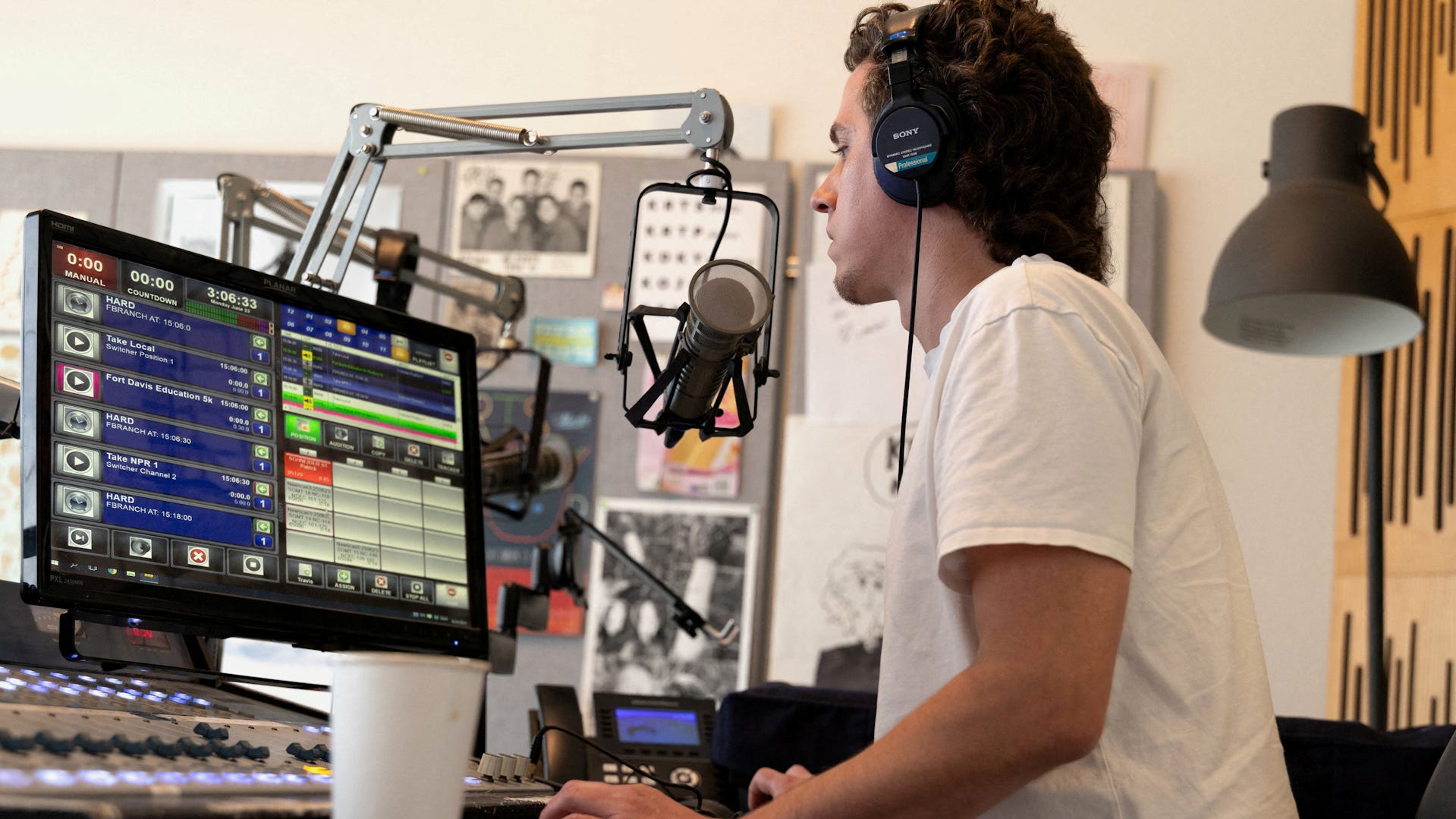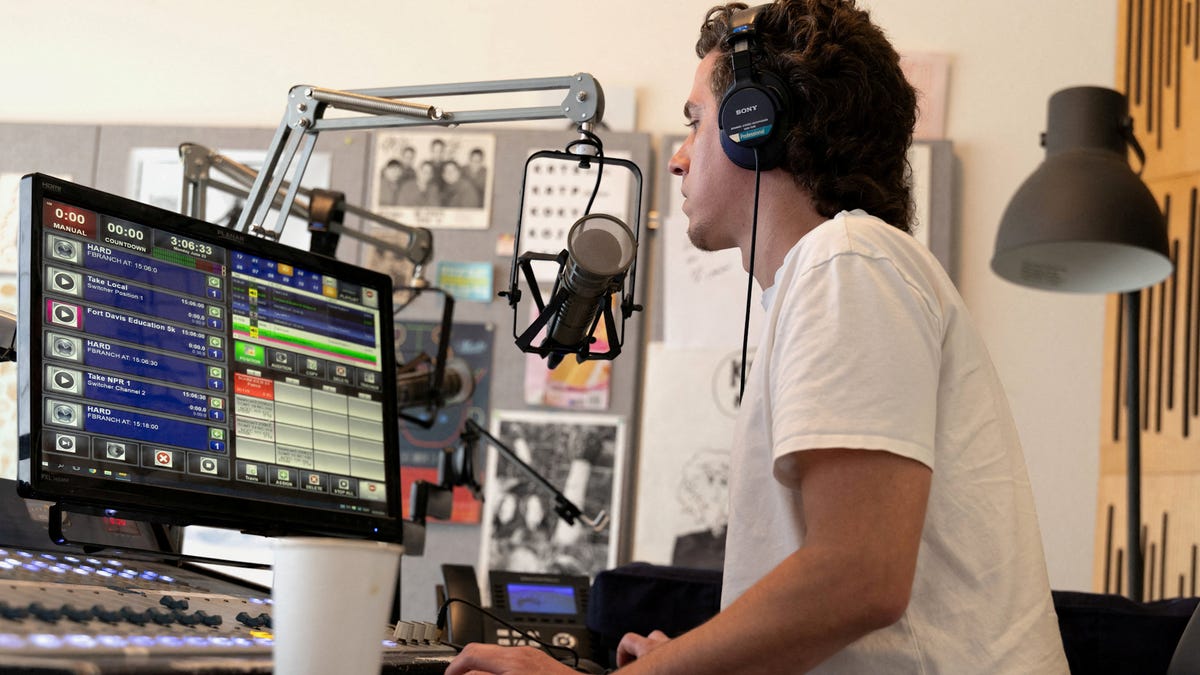
Corporation for Public Broadcasting to shutter after funding cuts
Corporation for Public Broadcasting will close after Congress pulled $1B in funding.
The Corporation for Public Broadcasting announced it will begin shutting down operations after Congress revoked over $1 billion in funding.Arizona PBS, which received more than $2 million from the CPB, is exploring alternative funding options.KJZZ said in a social media post it faces a $732,000 funding cut and is seeking donations.
Millions of dollars in funding are at risk across several Arizona public media organizations after the Corporation for Public Broadcasting announced it would begin the process of shutting down.
The corporation is a private nonprofit group that provides support for hundreds of public media stations across the country. It said in a statement that it was beginning an “orderly wind-down of its operations” on Aug. 1, with most jobs expected to be cut by the end of September.
The move comes after Congress voted to revoke more than $1 billion in funding already set aside for the corporation, citing political bias — an accusation the group has firmly denied. President Donald Trump previously shared his desire to slash public media in an executive order in May titled “Ending taxpayer subsidization of biased media.” The order called the government funding of news media “outdated and unnecessary” and questioned the stations’ journalistic independence.
Public broadcasting leaders across the nation have staunchly denied any claims of bias in their reporting and operations. They said the mass cuts will have a significant impact on the millions of Americans who use their services.
“Public media has been one of the most trusted institutions in American life, providing educational opportunity, emergency alerts, civil discourse, and cultural connection to every corner of the country,” said Corporation for Public Broadcasting President and CEO Patricia Harrison. “We are deeply grateful to our partners across the system for their resilience, leadership, and unwavering dedication to serving the American people.”
More than 70% of the federal funding it previously received went to local stations through the Public Broadcasting Service and National Public Radio. Leaders have warned that rural stations are likely to be hit the hardest.
News alerts in your inbox: Don’t miss the important news of the day. Sign up for azcentral newsletter alerts to be in the know.
How will CPB’s shutdown affect Arizona PBS?
Arizona PBS received more than $2 million in federal funds from the corporation, making up roughly 13% of the station’s budget. The station has been exploring other funding options in hopes of filling the gap created by the loss in federal money, said senior director of brand engagement and marketing Jeremy Cauthen.
“The loss of that funding will impact programming and station services, but it’s really too soon to know what those exact impacts will be,” Cauthen wrote in an email to The Arizona Republic. “For example, we’re not sure how this clawback of funding will affect other public media stations nationwide — and specifically their ability to continue producing programs broadcast and streamed here at Arizona PBS.”
The corporation plans on guiding local stations and producers through the upcoming “profound challenges,” Harrison said.
“CPB remains committed to fulfilling its fiduciary responsibilities and supporting our partners through this transition with transparency and care,” Harrison said in a statement.
Arizona PBS has not planned for any staff cuts, but plans to hire for several new positions have stopped. Cauthen said, “Arizona PBS remains committed to serving as a resource to the people of Arizona, and that won’t change.”
What’s the impact on KJZZ?
Jon Hoban, the general manager of KJZZ and KBACH in Phoenix, told The Republic in a previous interview that 9% of the station’s budget comes from federal funds. The cuts are most likely to affect their music programming, but Hoban said he didn’t envision any programming changes in the immediate months.
Hoban said in July that station leadership had been working on alternate budgets to protect jobs and was looking for alternative funding streams from community and corporate sponsors, as well as listeners.
“Our content creators and audience service teams are the reason we do this so we will try to find savings in other areas, including changes to existing contracts, cutting vendors and trimming in all other areas,” Hoban said.
Maricopa County Community College District Spokesperson Lindsey Wilson was not immediately able to comment. KJZZ is a public service of Rio Salado College within the district.
KJZZ shared on Facebook this week that the station is facing a $732,000 federal funding cut. The station posted a link where listeners could donate in support.
What have Arizona politicians said about cuts to public media?
Arizona lawmakers, like most of their colleagues, have fallen along party lines on the issue. Before the Senate vote in July, Sen. Mark Kelly spoke in support of an amendment vote that would have reversed the cuts. That vote was later blocked.
“This whole thing is a bad deal for the American people,” Kelly said. “It’s a gut punch to rural communities and makes us weaker and less safe on the world stage.”
Both Kelly and fellow Democrat Ruben Gallego said the stations that see the largest portions of their budgets covered by federal funds are on tribal land, where internet access can often be less reliable.
Republican lawmakers have largely reiterated similar concerns as Trump, saying taxpayers should not have their money directed to media they don’t support.
“With his vote for this first rescission package, Congressman Hamadeh once again made good on his promise to his constituents to eliminate wasteful spending and put America First,” a post shared on U.S. Rep. Abe Hamadeh’s X account read following the passage of the bill in the U.S. House of Representatives.
The corporation was authorized by Congress in 1967. In addition to supporting public stations across the country, it is also the largest single source of funding for research into public radio and television.
(This story has been updated to add new information.)
Bill Goodykoontz and BrieAnna Frank contributed to this article.
Helen Rummel covers higher education for The Arizona Republic. Reach her at hrummel@azcentral.com. Follow her on X, formerly Twitter: @helenrummel.

